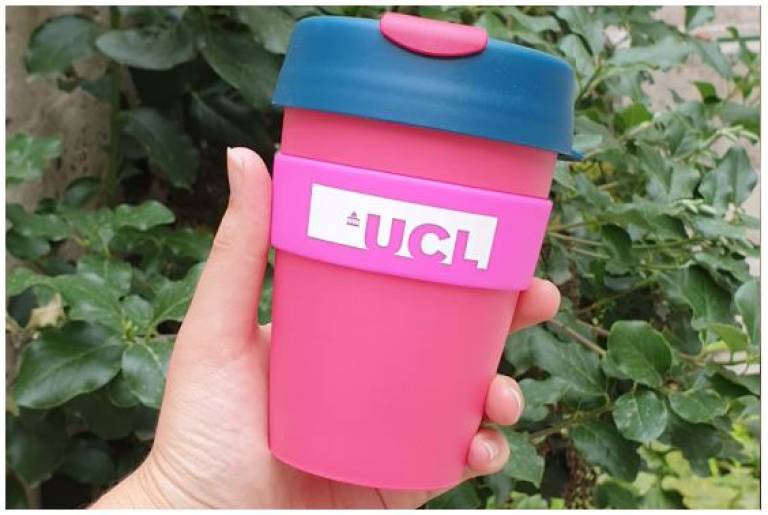Making UCL catering services more sustainable
UCL is trialling ways to improve the sustainability of its catering services, by increasing plant-based food offerings, reducing plastic waste and using locally sourced, sustainable products.

14 December 2023
To ensure UCL meets high environmental and social responsibility standards for the food it offers through its catering partners, the university has established a Healthy and Sustainable Food Policy and Strategy that encourages healthy and sustainable food production and consumption.
To meet its commitment, the university has established a range of sustainable food initiatives and partnerships, ranging from ethical food sourcing to food waste reduction that are helping to inform best practice across the university. It is also carrying out research in collaboration with catering partner, Gather & Gather, to trial new sustainable initiatives that will inform changes to its catering service.
One trial at UCL’s Wilkins Refectory explored the impacts of reducing meat portion size for meat-eating customers to help reduce the overall carbon footprint of catering services. Researchers invited chefs to design new menus so that on Mondays all meals served were composite dishes such as stews and curries. The researchers then adapted the recipes to reduce the meat content by 70%, replacing meat ingredients with legumes, pulses and vegetables.
The so-called ‘Flexitarian Flip’ dishes were reviewed by the chefs who assessed their nutritional value and carbon footprint. The nutritional value of the meals increased dramatically, while the environmental impact was significantly reduced.
“Customer feedback was positive and their enjoyment of the meal was similar whether or not the meat content had been reduced.”
“Despite concerns that customers may choose to eat elsewhere, customer feedback was positive and their enjoyment of the meal was similar whether or not the meat content had been reduced,” explained Charlotte Thwaite, Gather & Gather Sustainability Manager.
Phase two of the trial is now planned for term two, with further menu adjustments to ensure the dish descriptions correctly reflect the main ingredients and also that opportunities to maximise protein content are taken. Feedback from the second trial will help to direct whether Flexitarian Flip dishes have a long-term part to play in UCL’s sustainability goals.
Another recent trial, led by Gather & Gather in the university’s Brew Bar, collected data on interventions to reduce single-use plastics. All disposable coffee cups, confectionary with plastic wrapping and pre-packaged sandwiches were removed from sale. Customers either used ceramic mugs or their own cup and were offered alternative foods such as paninis.
“As a result, almost half of customers brought their own cups to the café with most others using the ceramic mugs provided,” Charlotte reports. “Almost all customers felt the removal of customer-facing single-use plastics was a positive experience.” Next year, the trial may be extended to a larger catering venue on one of UCL’s campuses.
“By trialling initiatives to reduce the carbon footprint of our catering services, minimise plastic waste and maximise opportunities to source products locally and sustainably, we can ensure future changes to our catering services meet the needs of customers, as well as helping us with our aims to be a sustainable university” says Evan Landy (Sustainable UCL).
 Close
Close


